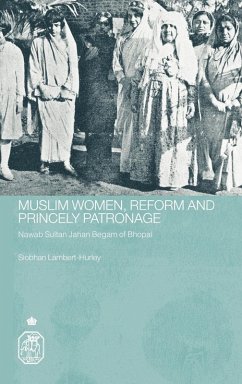This is a new and engaging examination of the emergence of a Muslim women's movement in India. The state of Bhopal, a Muslim principality in central India, was ruled by a succession of female rulers throughout the nineteenth and twentieth centuries, most notably the last Begam of Bhopal, Nawab Sultan Jahan Begam. Siobhan Lambert-Hurley puts forward the importance for early Muslim female activists to balance continuity and innovation. By operating within the framework of Islam, these women built on traditional norms in order to introduce incremental change in terms of veiling, female education, marriage, motherhood and women's political rights. For the first time, this book analyzes the role of the 'daughters of reform', the first generation of Muslim women who contributed to the reformist discourse, particularly at the regional level. Based on numerous primary sources in Urdu, including the tracts, books, reports, letters and journal articles of Sultan Jahan Begam and the other women of Bhopal along with official records such as the reports of early organizations and institutions in the Bhopal State, the author sheds light on an important part of India's history.
Hinweis: Dieser Artikel kann nur an eine deutsche Lieferadresse ausgeliefert werden.
Hinweis: Dieser Artikel kann nur an eine deutsche Lieferadresse ausgeliefert werden.








